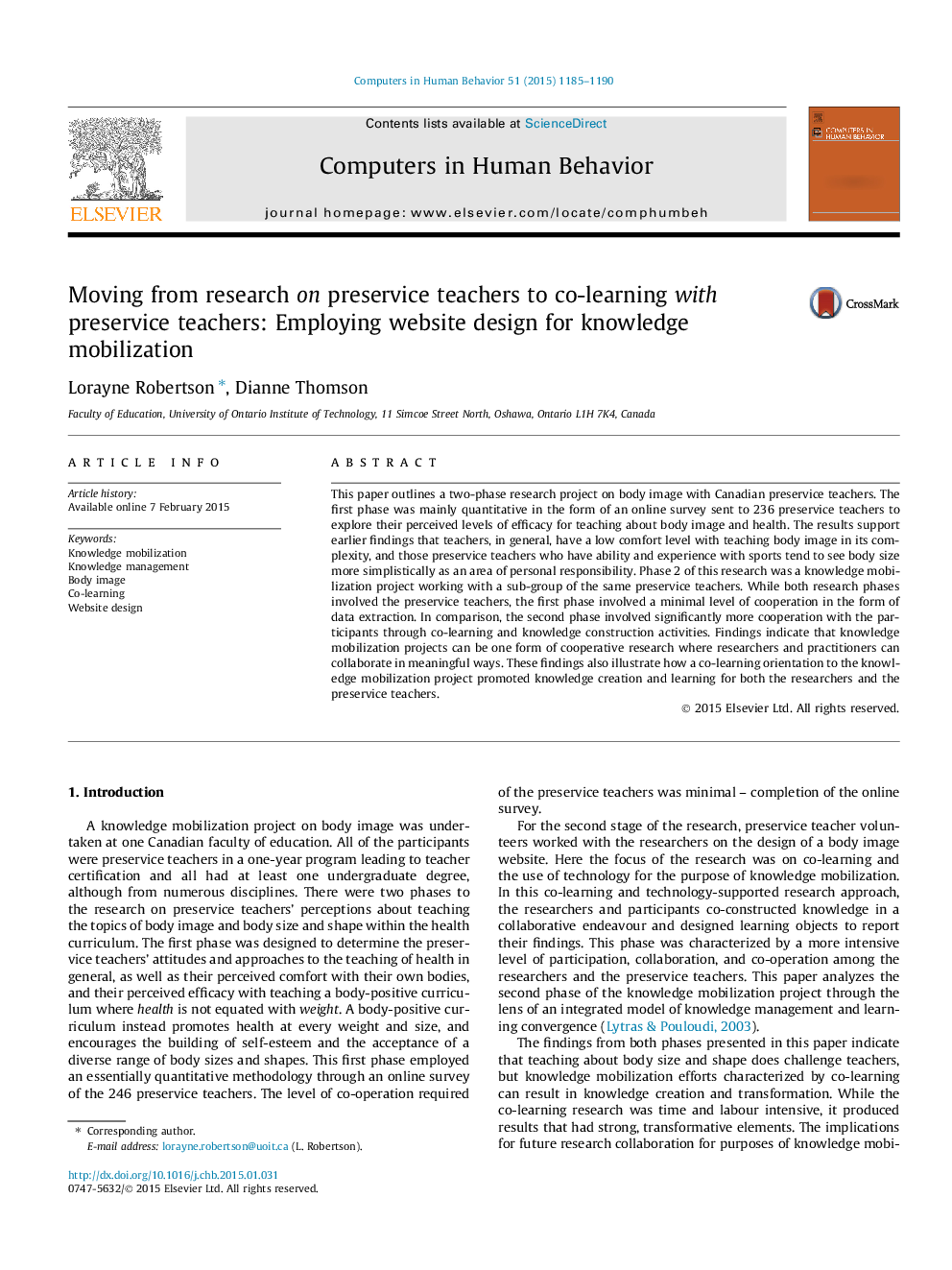| Article ID | Journal | Published Year | Pages | File Type |
|---|---|---|---|---|
| 10312665 | Computers in Human Behavior | 2015 | 6 Pages |
Abstract
This paper outlines a two-phase research project on body image with Canadian preservice teachers. The first phase was mainly quantitative in the form of an online survey sent to 236 preservice teachers to explore their perceived levels of efficacy for teaching about body image and health. The results support earlier findings that teachers, in general, have a low comfort level with teaching body image in its complexity, and those preservice teachers who have ability and experience with sports tend to see body size more simplistically as an area of personal responsibility. Phase 2 of this research was a knowledge mobilization project working with a sub-group of the same preservice teachers. While both research phases involved the preservice teachers, the first phase involved a minimal level of cooperation in the form of data extraction. In comparison, the second phase involved significantly more cooperation with the participants through co-learning and knowledge construction activities. Findings indicate that knowledge mobilization projects can be one form of cooperative research where researchers and practitioners can collaborate in meaningful ways. These findings also illustrate how a co-learning orientation to the knowledge mobilization project promoted knowledge creation and learning for both the researchers and the preservice teachers.
Related Topics
Physical Sciences and Engineering
Computer Science
Computer Science Applications
Authors
Lorayne Robertson, Dianne Thomson,
